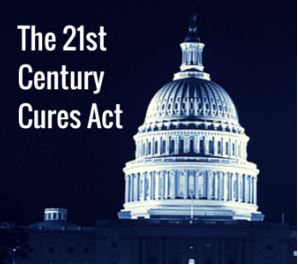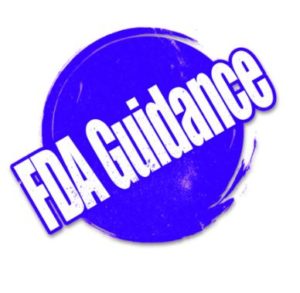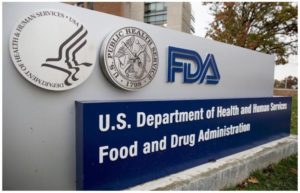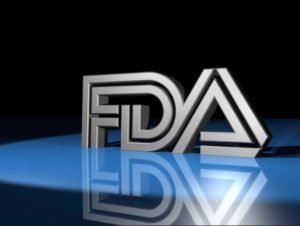- Non-Proprietary Naming of Biologics and Biosimilars: FDA Finalizes Guidance (raps.org)
In a departure from the way the WHO and Europe name biologics, the US Food and Drug Administration...finalized long-awaited guidance on how biosimilars and their biologic reference products’ names should include a four-letter, FDA-designated meaningless suffix attached at the end of the nonproprietary name...The decision to finalize this guidance follows...but large opposition to the idea of using meaningless rather than meaningful suffixes that could make it easier to distinguish the manufacturers of the products...For example...Sandoz’s Zarxio, which includes a non-proprietary name with a meaningful suffix (Sndz for Sandoz): filgrastim-sndz...But FDA has said it will change Zarxio’s nonproprietary name from filgrastim-sndz to “filgrastim-bflm." And Amgen's Neupogen (filgrastim) would be changed to "filgrastim-jcwp."...But these suffix rules do not necessarily apply to all related biologics...some instances it has designated a proper name that includes an identifier attached as a prefix to distinguish the products from previously licensed biologics. For example, with ado-trastuzumab emtansine, FDA includes a unique prefix, which it says was necessary to minimize certain medication errors and to facilitate pharmacovigilance.
- Looking For Bargains, Many Americans Buy Medicines Abroad (npr.org)
As drug prices have spiraled upward, tens of millions of generally law-abiding Americans have committed an illegal act in response: They have bought prescriptions medicines outside the U.S. and imported them...It's no secret that some Americans regularly buy prescription drugs on the Internet or while traveling abroad. But the popularity of the approach is underscored by the results of a Kaiser Family Foundation poll conducted in November...Eight percent of respondents said they or someone in their household had imported a drug at some point...The Kaiser poll queried a nationally representative sample of 1,202 adults...The Food and Drug Administration has cautioned that many online pharmacies aren't what they seem to be. An international crackdown in 2014 found that many packages of medicines purportedly from Australia, Canada, New Zealand and the U.K. contained drugs from other countries, including India, China and Laos...imported medications could be inferior or expired. Some could be counterfeits. But many medicines purchased from another country are the same as the ones patients buy in the U.S...When purchased outside the country, many prescription medicines cost half or less than they do in the U.S...it is generally illegal for Americans to import drugs into the U.S. for personal use. The law isn't rigorously enforced, in part, because it is difficult to monitor the entry of medicine in suitcases and small packages...in 2015 the FDA implemented a rule that would give government border inspectors expanded authority to destroy drugs imported for personal use at their point of entry.
- Makers of Abilify drug settle with 43 states, including Nevada, for $19.5M (reviewjournal.com)
Nevada is expected to receive nearly $300,000 in a multistate settlement with a pharmaceutical company accused of marketing a drug to patient groups for which they didn’t have federal approval and mischaracterizing the drug’s risks...Bristol-Myers Squibb Company, which partnered with Otsuka America Pharmaceutical, Inc. to market antipsychotic drug Abilify, settled with 43 states for $19.5 million, according to an announcement Thursday by the office of Nevada Attorney General Adam Laxalt...The company was accused of marketing the drug to seniors with Alzheimer’s disease and dementia despite the fact the drug wasn’t approved for those purposes by the U.S. Food and Drug Administration...
- 21st Century Cures would require pharma to post policies on experimental drugs (statnews.com)21st Century Cures bill would weaken requirements for disclosing industry ties (statnews.com)Bernie Sanders attacks the 21st Century Cures Act and pharmaceutical industry ‘greed’ (statnews.com)
In a nod to patients clamoring for greater access to experimental medicines, the 21st Century Cures legislation would require companies to publicly disclose their policies for making such drugs available...The language in the bill, which is designed to jump start medical innovation, appeared after complaints that many drug makers make it difficult for patients and their physicians to sort out the process for gaining access to medicines that are not yet approved for use by the Food and Drug Administration...only 19 of 100 drug makers publicly post policies about their programs for obtaining experimental medicines...only one of those companies posted information about specific procedures for making requests, and this company did not list any contact information…the findings underscored arguments by patient advocacy groups and lawmakers that the process for gaining access to experimental medicines is unwieldy, which has also generated criticism of the FDA...
- FDA releases guidance on electronic drug applications (biopharmadive.com)
The Food and Drug Administration is ironing out new rules for how drug companies can electronically submit medications for approval, and on Dec. 28 unveiled a draft of what they have planned so far…The draft largely focused on manufacturing establishment information (MEI) — things like a production facility's address, what it's manufacturing, how to reach the person in charge of scheduling inspections, as well as a unique facility identifier, which the agency uses to keep track manufacturing plants…The FDA is requiring companies to electronically submit MEI for each facility, but all in a single list. Companies must provide those lists for new drug applications (NDAs), abbreviated new drug applications (ANDAs), biologics license applications (BLAs), and any other supplemental materials… Once the final version of the guidance gains approval, drugmakers will have 24 months before the new rules become mandatory…The agency noted several reasons for the push toward electronic MEI submissions. The primary one was the convenience of having all the information on a single file versus non-electronic applications, where it can be scattered.
- FDA Says Real-World Evidence Could Generate ‘Incorrect or Unreliable Conclusions’ (raps.org)
...top Food and Drug Administration officials published an article in the New England Journal of Medicine (Real-World Evidence — What Is It and What Can It Tell Us? )...calling into question some of the potential uses of real-world evidence but also acknowledging that real world research and the concepts of a planned intervention and randomization “are entirely compatible."...while acknowledging that such (real-world) evidence “can inform therapeutic development, outcomes research, patient care, research on health care systems, quality improvement, safety surveillance, and well-controlled effectiveness studies,” the authors caution that “the confluence of large data sets of uncertain quality and provenance, the facile analytic tools that can be used by nonexperts, and a shortage of researchers with adequate methodologic savvy could result in poorly conceived study and analytic designs that generate incorrect or unreliable conclusions...“Accordingly, if we are to realize the full promise of such evidence, we must be clear about what it is and how it can be used most effectively, and we must have appropriate expectations about what it can tell us,”...
- FDA finalizes quality guidelines for contract manufacturers (biopharmadive.com)
The Food and Drug Administration has finalized guidelines, three-and-a-half years in the making, suggesting what should go into quality agreements between pharmaceutical companies and outsourced contract manufacturers...The agency's recommendations come at a time when fully two-thirds of pharmaceutical manufacturing is outsourced, putting significant demand on contract manufacturing organizations (CMOs)…Current Good Manufacturing Practice requirements apply to all contract facilities, including analytical testing labs...FDA recommends that owners and contract facilities implement written quality agreements delineating manufacturing activities to facilitate compliance with CGMP. The agency suggests that quality contracts between companies and CMOs include the purpose and scope of contract manufacturing services to be provided; provisions on how to resolve disputes and how to change manufacturing processes, and contract revision policies...
- Antibiotics sales for use in U.S. farm animals rose in 2015: FDA (reuters.com)
U.S. sales and distribution of antibiotics approved for use in food-producing animals increased 1 percent from 2014 to 2015, the U.S. Food and Drug Administration said in a report...Scientists have warned that regular use of antibiotics to promote growth and prevent illness in healthy farm animals contributes to the rise of dangerous, antibiotic-resistant "superbug" infections, which...pose a significant threat to global health...An estimated 70 percent of antibiotics used to fight human infections and to ensure the safety of surgery and other invasive procedures are sold in the United States for use in meat production...In 2015, sales and distribution of those medically important antibiotics for food production rose 2 percent...Medically important antimicrobials accounted for 62 percent of the domestic sales of all antimicrobials approved for use in farm animals...McDonald's USA and some other chains have switched to serving chicken raised without antibiotics important to human health…
- Map of all medicines and their mode of action is created (pharmaceutical-journal.com)
Scientists have mapped all 1,578 licensed drugs licensed by the US Food and Drug Administration according to their mechanisms of action to help researchers visualize the ‘uncharted waters’ where they may find future treatments...Scientists at The Institute of Cancer Research in London...extracted data from their own drug database, as well as databases at European Bioinformatics Institute in Cambridge and the University of New Mexico. They matched each drug with prescribing information and data from published scientific papers to build up a picture of how each existing medicine works. The analysis, published in Nature Reviews Drug Discovery (A comprehensive map of molecular drug targets) reveals that there are just 667 unique human proteins targeted by existing approved drugs (or only 3.5% of the estimated 20,000 human proteins), and a further 189 drug targets in pathogenic organisms...This new map of drugs, created through the latest computational analytical technologies, will enhance our ability to use rational, data-driven approaches to identify the most promising future targets and treatment combinations for the next generation of cancer and other diseases...
- House Just Passed the Biggest Health Reform Bill Since Obamacare (fortune.com)
The House of Representatives on Wednesday night overwhelmingly passed wide-ranging legislation meant to overhaul the drug approval process, boost biomedical research, and many other significant health-related policies. The so-called 21st Century Cures Act was approved on a 392-26 vote and will head to the Senate for consideration next week...The bill aims to speed up the approval for drugs and medical devices through a variety of tweaks to the Food and Drug Administration. But it also encompasses a host of other big initiatives, including more than $5 billion in funding for the National Institutes of Health and money to help the FDA; $1 billion for tackling the opioid epidemic; and provisions that are meant to help pair Americans who suffer from serious mental illnesses with available psychiatric beds...










